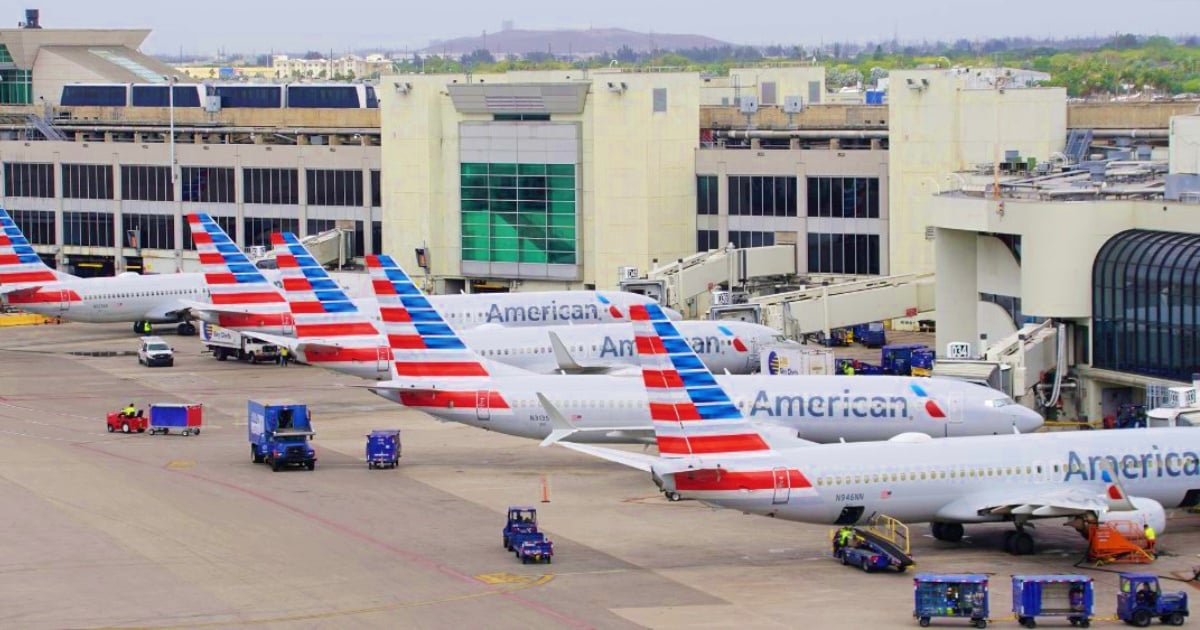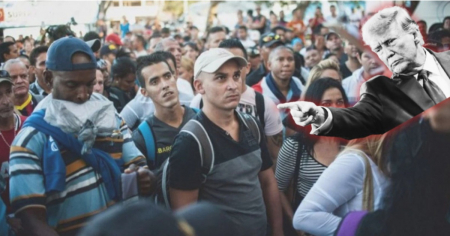
Related videos:
The decisions and statements of President Donald Trump are driving away thousands of international tourists from the United States.
The cases of arrests at the border, returns to their countries of origin without explanation, and an openly hostile discourse towards foreigners and immigrants are impacting the country's image as a tourist destination.
Several airlines and travel agencies are already reporting flight cancellations, and experts project million-dollar losses for the industry.
The New York Times mentioned among the companies with reductions, Delta Air Lines and American Airlines. Both indicated that the cuts in their financial forecasts for the early months of the year are due to the weakness in travel spending.
The fear of being rejected discourages travel
In recent weeks, cases have emerged such as that of a scientist turned away at the border for having critical messages about Trump on his mobile, a British punk band deported from Los Angeles, and a Welsh backpacker detained for three weeks under questionable conditions.
These incidents, far from being isolated, are creating a global perception that visiting the United States might involve risks, even with an approved visa, something that the government emphasizes.
Several European countries have issued warnings to their nationals. Norway reminded that the ESTA or a visa do not guarantee entry to the United States, and Denmark advised its citizens to verify their documentation since the United States requires the gender assigned at birth.
Tourism in free fall: The figures are concerning
A report from the consulting firm Tourism Economics, affiliated with the University of Oxford, indicates that international tourism will decline by 5.1% this year, with a 0.8% reduction in hotel demand. This would result in an estimated loss of $18 billion. The initial projection was for a growth of 9%.
In February, international arrivals decreased by 2.4% compared to the previous year, excluding Canada and Mexico. At the same time, official data shows that Canadians crossing the border by land dropped by 24% and by air by 13%, following the imposition of new tariffs announced by Trump. Reservations by Canadians for accommodations in Europe increased by 32%.
Europe is a key source of tourists for the United States. In 2024, European tourism generated $155 billion in revenue. However, a 1% decline in visits was already detected in February, and this figure is expected to rise in March.
Many fronts open at the same time in the United States
In addition to immigration policies, Trump's confrontational rhetoric against Canada, Europe, and other traditional partners, along with his intention to restrict entry from up to 43 countries, such as Belarus, Cambodia, or Saint Lucia, is creating a global backlash.
Data from the U.S. Department of Commerce indicates that Canada, Mexico, and the United Kingdom were the top three sources of tourists in 2024.
However, flight searches to the United States have significantly decreased on European portals, and several agencies report lower demand. The strength of the dollar is also a factor, making travel more expensive.
A tense environment is not conducive to tourism
"It's a very hostile and frightening moment, and frankly, there are many other welcoming and pleasant places I can go to meet with my family," said Mallory Henderson, a British national who canceled her trip to Boston for Easter. Her testimony reflects a growing trend among travelers from around the world.
Global uncertainty and restrictions are compounded by an increasingly exclusionary political discourse. Experts agree that international tourism in the United States faces a bleak outlook under Donald Trump's administration.
Frequently asked questions about immigration measures and their impact on tourism in the U.S.
Why are flights to the US being canceled?
Flight cancellations to the U.S. are mainly due to the fear generated by the government's immigration policies under Trump. These policies have created a perception of risk among tourists, who fear being denied entry or detained upon arriving in the country, even with an approved visa. This situation has led airlines and travel agencies to report significant cancellations.
How are Trump's policies affecting tourism in the U.S.?
The immigration and tariff policies of Trump are having a negative impact on tourism. An international tourism decline of 5.1% is projected, resulting in a loss of $18 billion for the sector. Furthermore, the hostile rhetoric towards foreigners and the imposition of tariffs have discouraged travel to the U.S., particularly from Europe and Canada.
What incidents have influenced the negative perception of the U.S. as a tourist destination?
Cases like the detention of a scientist for having critical messages about Trump on his phone and the deportation of a British punk band have contributed to a negative perception. These incidents, along with the detention of tourists at the border, reinforce the idea that visiting the U.S. can carry risks, thereby affecting its image as a safe and welcoming tourist destination.
What measures are other countries taking in response to U.S. policies?
Several European governments have issued warnings to their citizens about traveling to the U.S. Norway reminded that having an ESTA or visa does not guarantee entry, and Denmark advised its citizens to review their documentation. These actions reflect the growing international concern over the treatment of visitors in the U.S. and the impact of its immigration policies.
How have economic sectors in the U.S. reacted to deportations and Trump’s policies?
U.S. companies are suffering losses due to the lack of immigrant labor, which is essential in sectors such as agriculture and manufacturing. Deportations and the fear of being detained have reduced the availability of workers, affecting productivity and generating uncertainty in the economy, with potential negative impacts on the country's GDP.
Filed under:





